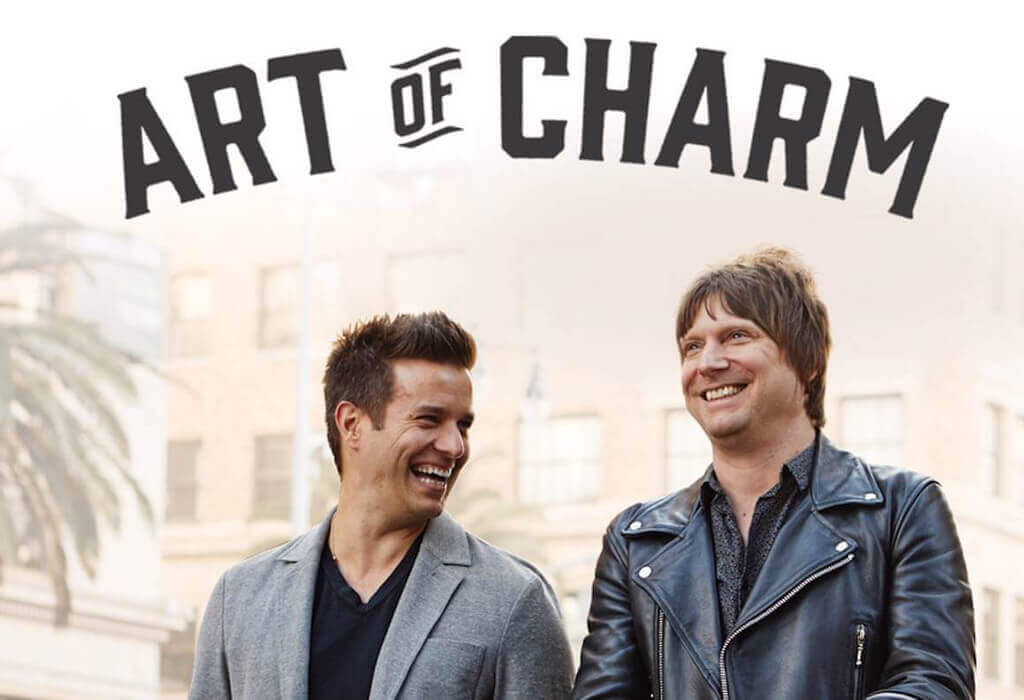A few years ago I quit my dream job when I realized it didn’t fit my true personality. I left without a plan and broke the news to my family.
“So marry rich,” said my mother, only half-kidding. My father, on the other hand, immediately pointed out that I needed a new full-time job to get a W-2 and qualify for a mortgage (because buying a house was obviously the answer to my existential crisis). My brother told me to sell my things and move to Thailand, because I’d never look this good in a swimsuit again.
I was suddenly the recipient of more unsolicited advice than I knew what to do with. A career coach recommended jobs to suit my strengths, like “soil scientist” and “horse therapist.” Bestsellers and blog posts told me to start my own online business or jump aboard a growth-stage startup. Like pairs of common proverbs that contradict each other, pieces of advice that were delivered with unwavering confidence pointed me in opposite directions. And when too many people agreed on one thing, I worried that it could be the type of popular wisdom—like “get a prestigious tech job”—that would lead me back to the trap I’d just escaped.
 At the exact moment I needed advice more than ever, I had no idea how to process it.
At the exact moment I needed advice more than ever, I had no idea how to process it.
That’s when I started learning how to filter advice — how to listen to it, how to understand it, when to take it, and how to use any piece of advice, good or bad, to my advantage. This is such an important topic, and one that doesn’t get talked about enough, given that everyone needs advice and that the world is intent on providing it.
So when you’re faced with a firehose of input, how do you manage it? How do you reconcile two recommendations that contradict each other? And when you do follow guidance, how do you know that you’re doing so because it reflects your true interests, and not because you’re just acting out other people’s dreams?
That’s what this piece is about: Tried and true advice on how to take advice.
Know what your needs are
When my father reminded me that I needed a full-time job to qualify for a house purchase, I immediately felt some knee-jerk house FOMO kick in. This was typical: I’d been following my dad’s guidance my entire life. But if I continued to do so blindly, I’d be living out a life that had nothing to do with my needs and everything to do with my father’s.
To break out of this cycle, I needed to assert my own goals and understand my own needs. Which meant I needed to become more self-aware.
And that’s the first step in spotting advice that’s good for you and protecting yourself from advice that doesn’t serve your interests. The more in touch you are with what you want and the obstacles that hold you back, the more sophisticated and grounded you’ll become in processing feedback.
I decided that for the first year after quitting my job, my needs (and therefore priorities) were to get in shape, indulge my artistic side, and start dating again. A house wasn’t part of that picture. I was able to file my dad’s tip away for another day.
You can learn about your needs by talking to experts and taking personality tests, but sometimes it’s most effective to simply spend 30-60 minutes thinking about what you want in your life and why it’ll make you happy.
For example, if you’re considering a career change, try the following thought exercise:
- Imagine your ideal lifestyle by walking through a typical Tuesday, from the time and place you wake up to the time and place you go to sleep.
- Examine each of its characteristics. Do you have job security? Do you get no-pants Tuesdays? Do you have an impressive job title to blow away your friends? Are you physically active from 12pm to 2pm?
- For each characteristic, ask yourself, Why do I want that?
- Keep asking Why? over and over again. Maybe you’ll find that you want to exercise from 12pm to 2pm because you just like exercise, but maybe you’ll find that it’s because you’re afraid of poor health in old age, and long-term security and comfort is actually a top priority for you.
When I did this exercise, I noticed that in my ideal day, I don’t talk to another human being until about 7pm at night. It turns out I’m a natural introvert, and alone time is key to my happiness. This was a major discovery. It’s now easy to filter out a bulk of the advice that comes my way about getting an office job or building a consulting practice that orbits around meetings and phone calls. I could simply note it and move on to better advice. I could also tell people about my introversion now that I understood it better, which put them in a better position to give me advice that I would actually find useful. If I happened to be an extrovert, then their advice would have been spot on.
Becoming more self-aware (which is an ongoing process in and of itself) helps you discover your true self — the person actually listening to advice, and actually making decisions based on it.
Check your ego at the door
Our ego is like a pair of glasses through which we filter the world, including the advice we hear. Every idea you encounter will be put through that filter, and might cause you to either overindulge or miss the information that comes your way.
This is totally normal. Your ego is especially on guard when getting advice or recommendations, because they directly affect your identity. If someone criticizes your choices or threatens your sense of self, the ego will work to defend itself. If someone hits a flattering note, the ego will feel validated and secure, and probably more receptive to the advice.
But what you need most when you listen to advice is just that: the ability to listen. Without preconceived ideas, biases, defenses or beliefs. In the moment you receive feedback, the best thing you can do is simply hear the information as information — to entertain ideas you would normally dismiss, and to remain objective about ideas you already believe. Later, you’ll process that information with as much or as little ego as you like.
So how do you suspend your ego? The first step is simply to observe. The next time someone gives you feedback, just notice any resistance you have. Check for tendencies to:
- Get defensive about your past choices
- Feel competitive or compare your achievements to others
- Dismiss recommendations out of hand or protest a solution with “I’ve already done that”
- Shut down or feel like you’re being treated like a child
- Feel sorry for yourself or misunderstood
- Vent about your current situation
The moment these signs of ego arise, you can notice them, create some distance, and refocus on taking the advice at face value. You don’t need to dissolve your ego in order to effectively process advice; you only need to recognize when it gets in the way of hearing pure information. Seeing, as they say, is freeing.
By being open, you’ll take advantage of the full spectrum of advice that comes your way and be more likely to find the gems that change your life. Later, you can use your beliefs, priorities and past experience to filter and harness the advice you like. But in the moment, setting aside the ego is a crucial part of filtering in the best feedback.
Consider the source
In a letter to a friend who had asked him for advice, Hunter S. Thompson wrote that “all advice can only be a product of the man who gives it.”
A person’s guidance to you is indelibly marked by their life experiences, beliefs, assumptions, and (this is important!) relationship to you. Feedback — even great feedback — is never objective. It’s inextricably linked to the source.
Which means it’s your responsibility to be aware of that source and navigate feedback accordingly.
First, consider someone’s agenda when talking to you. One of our alumni, for example, had been bootstrapping his own concert promotions company when a friend began asking him a strange question every few weeks. “So, are you planning on getting a real job?” A weird move, to be sure, but it turned out that the friend was about to join a startup and wanted to recruit our alum to his marketing team. His question wasn’t coded advice, so much as subtle manipulation for his own interests.
Every source of advice has some sort of agenda — to sell you something (authors), to approve of you (friends), to feel proud of your choices (parents), to keep you around (bosses and significant others). That doesn’t mean all advice is ill-intentioned, only that all advice reflects certain beliefs and intentions. It’s our job to identify what those beliefs and intentions are, so we can put the feedback in context.
Next, make the most out of advice by connecting it to the person’s strengths and accomplishments. Ask yourself: What do I value in the person who’s giving me guidance? If you admire your boss’s management finesse, you might take his team-building advice to heart. You might choose to follow relationship advice from your happily married uncle instead of your casanova cousin. You’ll probably want to follow a coach whose life reflects his philosophy.
If advice is the product of the man who gives it, then it’s crucial to understand just who that man is, and process the advice accordingly.
Parse feedback
All advice has value. The question is whether you follow all of it, none of it, or part of it.
If someone gives you eight different recommendations, it’s highly possible that only a few ring true. At the same time, they might understand your problems perfectly — and articulate them better than you ever could — but the solution they’ve come up with feels misguided.
In this case, do you throw away all eight recommendations? Or accept all of them, knowing that a few won’t work? Or do you forget that you ever had a conversation with this person and move on?
You’ll open yourself up to much more useful guidance if you develop your ability to parse feedback into helpful and unhelpful pieces. Listen to everything, then act on only the best — or the best parts. As Jordan often says on the podcast, “Take what works and leave the rest.”
Different people offer different pieces of value. You’ll find great gems within larger pieces of misguided feedback. Sometimes, someone will help you frame a problem or expose a shortcoming, but fail to provide the right solution. This is where self-awareness and sensitivity to the source come into play once again. If you can appreciate the bits and pieces of advice that speak to you based on your own internal compass, you can get great advice from all sources, even ones that don’t entirely serve you.
So let’s replace the all-or-nothing mentality when it comes to feedback. There isn’t “right” and “wrong” feedback, so much as varying degrees of utility. Pieces of advice, or even directional feedback, can be immensely valuable, even if it doesn’t work for you as a whole. Taking that view will allow you to find value everywhere, even in seemingly unhelpful places.
Make the best of advice you disagree with
If there’s no “bad” advice — since you can extract value from individual pieces — then it’s also true that you can grow even from advice you disagree with.
Ben, another AOC alum, once met with an investor to discuss his new start-up. The investor, who had a string of successes and a nice amount of cash, told him right off the bat that his product was a poor fit with the market. Instead of chasing casual diners, Ben’s main type of customer, he should have been chasing restaurants themselves, with totally different features. The way Ben describes it, he left the meeting in total doubt, wondering if he needed to completely retool his business.
So he marinated for a few days, discussed the conversation with his partners and colleagues, and realized something simple but profound: he didn’t want to build that business. His passion was serving restaurant patrons. He had no expertise or interest in building sales software for restaurants. He thanked the investor for the advice and returned to building his original product.
What he gleaned from that meeting, he says, was an alternative point of view that challenged his thesis and forced him to reevaluate his strategy. By meditating on this investor’s advice, though, he remembered why he was passionate, driven and uniquely qualified to build the business he set out to build. Ultimately, the investor was telling Ben what he wanted — not what was best for Ben. Ben received advice that he fundamentally disagreed with, and yet it ended up helping him nonetheless.
(You can also see how the earlier principles — considering the source, checking your ego, understanding your own interests, parsing feedback — played a big role here.)
What can you learn from bad advice? In short, anything you choose to take away from it. Feedback you fundamentally disagree with can give you new confidence, by forcing you to reconsider your position. It can strengthen your strategy, by encouraging you to revisit your assumptions. It can open your eyes to how other people think, by exposing you to alternative opinions. Sometimes it can even give you a laugh or a dose of optimism, if the advice is particularly out of left field. Once you let go of the right-or-wrong, all-or-nothing view of feedback, you’re free to capitalize on all ideas, whether or not you decide to pursue them.
Buffer feedback with space and time
There’s nothing more tempting than jumping on an exciting idea — especially when it comes in the form of advice, and particularly when that advice feels right.
But one of the most important stages in processing advice is giving yourself space and time to sit with the information, assimilate it, and apply it in the right way. Moving quickly can be gratifying (especially if we were in a rut before we encountered the advice), but it can easily create new problems to resolve.
Interestingly, this also applies to advice we don’t take. Sometimes we need distance to discover that advice we initially disliked is actually correct — or, as we’ve discussed above, valuable in parts.
So when you get a piece of advice, give yourself some time to process before taking action. Twenty-four hours is a good baseline, but every decision requires a different mindset. For smaller decisions, like designing product features or pitching a new idea, an afternoon might be enough. For bigger decisions, like hiring a new employee or having a difficult conversation with a family member, a few days are essential. For major life decisions, like moving cities, getting engaged or starting a new company, it might take weeks to properly consider your next move.
Of course, time is only one factor. Productive discussions with trusted friends and colleagues during that time is essential. Listening to your internal compass and observing how conditions change in the meantime are also key. Space might also be a useful factor. There’s a reason people take trips and executives hold off-site retreats: physical distance also helps us get some objectivity while opening up our worldview.
Is there room for spontaneity and intuition here? For sure. Sometimes a piece of advice is so obviously true, so clearly useful, that it would be a shame to paralyze yourself by overevaluating. Even here, the 24-hour moratorium will serve you well, but there will always be a role for your instinct.
Whatever the situation, consider buffering advice with time and space, and avoid acting (or reacting) after the initial charge of new advice. Staying level-headed about advice is key to making smart decisions, and spreading out decisions is an excellent way to pursue advice while remaining stable and self-aware.
Be True
And that is how to process advice — good or bad, useful or unuseful, relevant or random — while making great decisions and preserving your sense of self. As Polonius says to Laertes, “This above all: to thine ownself be true.”
And if you can stay true to yourself while effectively processing other people’s input? Then the world — parents, siblings, girlfriends, self-help authors — can only serve to help you. “And it must follow, as the night the day,” says Laertes, “Thou canst not then be false to any man.”
Most importantly, yourself.
Image credit: Ahmed Hashim



